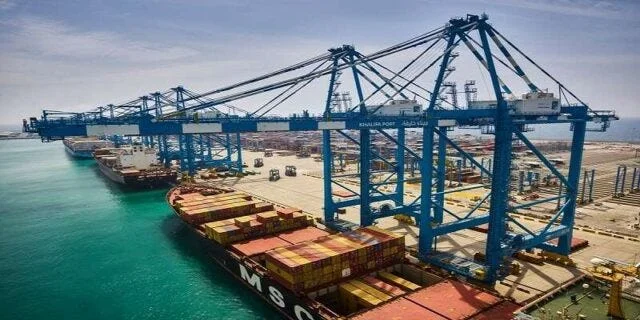Islamabad, 18 Apr 2025: Karachi Port Operations Paralyzed due to an escalating Transporters’ Strike that has brought the movement of goods across Pakistan to a standstill.
Now in its fourth consecutive day, the strike is disrupting both incoming and outgoing cargo from factories to seaports and beyond, threatening the stability of the country’s trade operations.
Nationwide Cargo Flow in Crisis
The Goods Transport Association (TGA) has ramped up its protest, freezing logistical operations linked to import-export consignments.
This immobilization has led to widespread concern among industrialists and exporters, especially as perishable goods face spoilage risks and dollar-based demurrage fees accumulate on delayed shipments.
READ MORE:
Food Exports in Pakistan Grow 1.62%
According to Jawed Bilwani, President of the Karachi Chamber of Commerce and Industry (KCCI), this strike is worsening Pakistan’s already fragile export landscape.
“Global challenges such as international tariffs are already affecting our trade. This disruption only amplifies those issues,” Bilwani noted, urging immediate government intervention to avoid lasting economic damage.
Dispute Rooted in Vehicle Fitness Demands
The core conflict stems from a standoff between goods transporters and the Sindh government over vehicle fitness regulations. A source within the Karachi Port Trust (KPT) clarified that the port authorities are not involved in the dispute.
Transporters are calling for a six-month grace period to address demands related to fitness certification, repairs of heavy-duty trucks, and installation of mandatory surveillance cameras.
The Transporters’ Strike has gradually gained traction. While cargo flow was only partially impacted in the first two days, a complete shutdown began on Thursday as multiple transport bodies united behind the TGA, said Khurram Ijaz, former Vice President of the FPCCI.
Risk of Trade Collapse Looms
Ijaz warned that if authorities fail to mediate and end the deadlock, cargo vessels may start departing without loading goods. Such a scenario would not only cripple port operations but also disrupt supply chains and paralyze factory activities.
With around 10,000 containers moved daily within Karachi and throughout the nation, the scale of the disruption is staggering.
According to Asif Sakhi, Vice President of FPCCI, nearly 90% of trade logistics have ground to a halt, creating intense congestion at port terminals.
“Ships anchored off the coast cannot dock due to clogged ports, which jeopardizes import and export deals,” he said.
READ MORE:
Karachi Gas Pocket: Govt Sets Up Probe Committee
TGA’s Formal Demands and Ongoing Deadlock
Karachi Port Operations Paralyzed, and the situation remains unresolved. TGA President Tariq Gujar reiterated their demands through an official letter, requesting a half-year extension to bring their vehicles up to regulatory standards.
This includes halting deregistration, releasing seized vehicles, and implementing camera systems. Unless swift negotiations take place, Pakistan’s trade network may suffer long-term consequences from this ongoing transport impasse.









